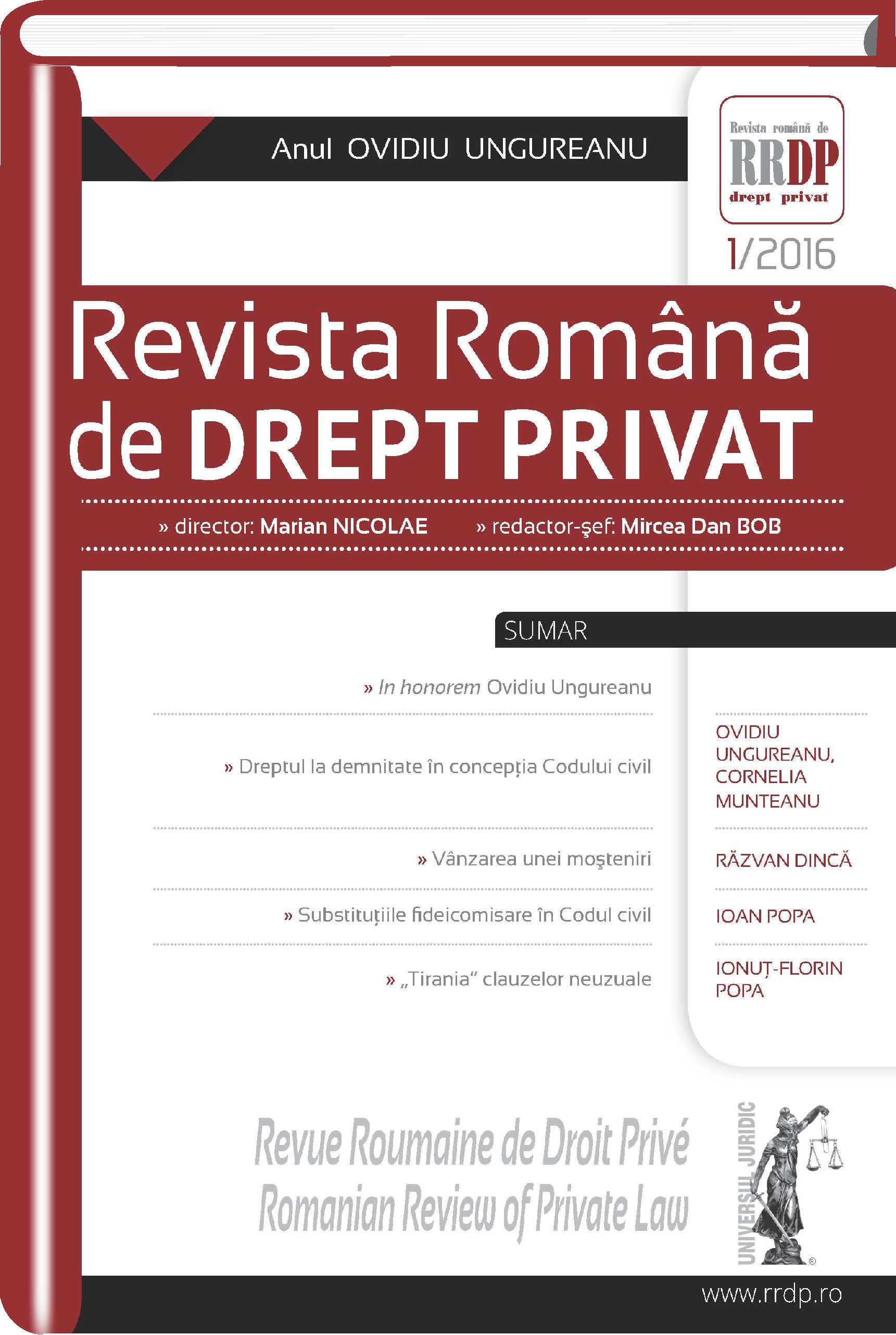Elita clujeană a dreptului
The Cluj elite of law
Paradigms in the legal way of thinking of the Cluj law school
Author(s): Cristian ColceriuSubject(s): Law, Constitution, Jurisprudence, Civil Law
Published by: Universul Juridic
Keywords: Atticism; Cluj school of law; private law; public law; civil law; criminal law; commercial law; constitutional law; administrative law; financial law; labour law; elite; legal school;
Summary/Abstract: In the 20th century, the best jurists from Cluj imposed certain value benchmarks, especially in those branches of the law in which the originality of the solutions was on the tops, and these orientations have been benchmarks for the Romanian doctrine and case law several times. The judiciary elite represented one of the dynamic social shares of professional conduct from Cluj, both at the academic level, by those professors who represented the solid school of law, and by its practitioners of first importance, lawyers, judges or prosecutors exercising their office in the inter-war years. The legal doctrine from Cluj was also in the forefront for the Romanian legal doctrine, as it has permanently launched new theories related to different aspects of law appeared in its various stages of specific development of the social relationships and of the economic and political growth of the State. The nucleus of Cluj law school was built and developed under the aegis of the Faculty of Law of the University, as well as of the Cluj Subsidiary of the Romanian Academy, representing umbrella forums, which systematically organized and conducted the scientific research in the legal field. Since 1919, when the Kingdom of Romania decided to establish “The National Superior Dacia University” in Cluj, which became “King Ferdinand I University” later, the Faculty of Law managed to recruit valuable professors who were notable jurists, who distinguished themselves as enthusiastic creators of school and tradition. Belonging to the first generation of the university jurists from Cluj, Traian Pop, Camil Negrea, Ion Cătuneanu, George Sofronie, Romul Boilă, Victor Onişor were part of the elite of trainers of legal school, in the climate of which, during its development stages, certain professionals of law were distinguished, such as Erast Diti Tarangul, Aurelian Ionaşcu, Ioan Albu, Tudor Drăganu, Vladimir Hanga, Ion Deleanu, Liviu Pop. In their capacity as experts in private law and publicists with solid concerns in the field of legal science, they provided that cohesion needed for the development of an important corpus of ideas, concepts, theories, solutions and papers which conferred some conceptual unit to the legal way of thinking from Cluj and inclusive significance of the specific manner of expression of the personality of the Transylvanian jurist in the Romanian public life.The way of thinking and the writings of the jurists from Cluj in the inter-war years were distinguished by a certain Atticism, as many of the outstanding writings of the authors of the law papers were created based upon the idea of measure, balance, system. If the doctrinal orientation at the national level was strongly influenced by the French legal doctrine in civil law, and by the Italian legal doctrine in criminal law, in Ardeal the Austrian legal tradition represented the followed legal pattern, and this aspect may be explained as well, by the influence of the Imperial laws and especially, of the Austrian Civil Code, which continued to apply until 1943 in the Transylvanian region.
Journal: Revista Română de Drept Privat
- Issue Year: 2016
- Issue No: 01
- Page Range: 34-65
- Page Count: 32
- Language: Romanian
- Content File-PDF

